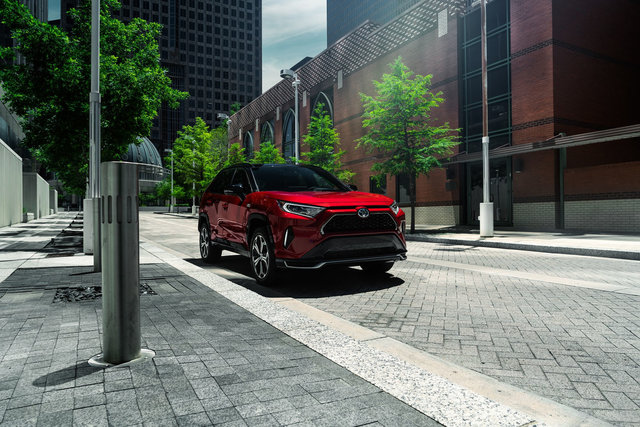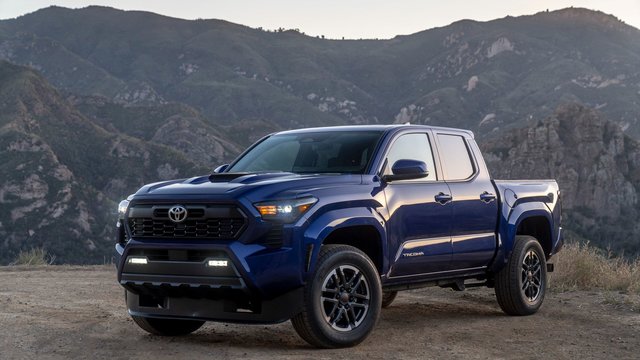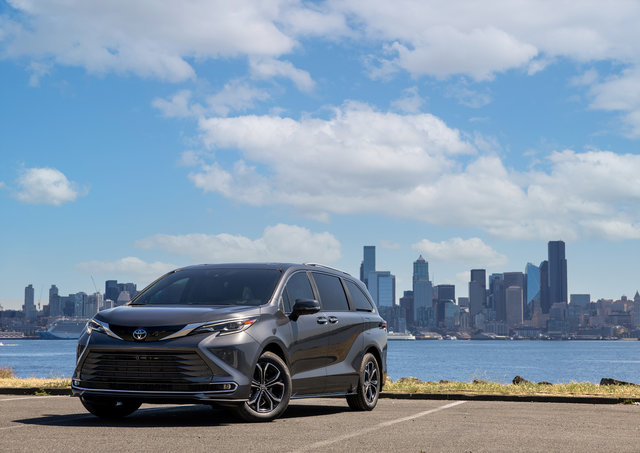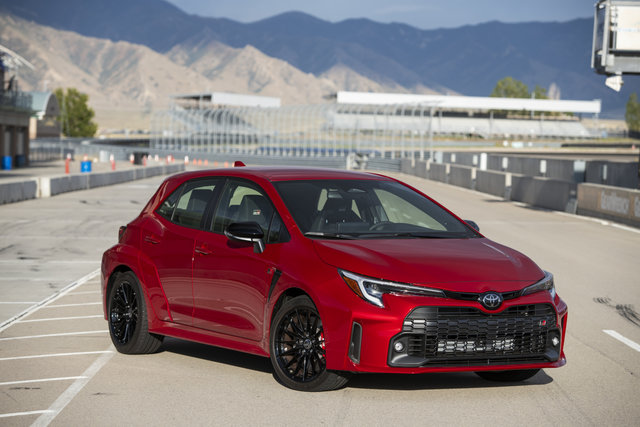If you're a homeowner in Mississauga tackling weekend renovations, you need a truck that can haul...

Toyota is one of the leading automakers in the industry when it comes to hybrid and plug-in hybrid vehicles. Toyota vehicles are also among the best-selling electrified vehicles in Canada year after year. Now, you may be wondering if a hybrid or plug-in hybrid vehicle is right for you, and you may have questions about what differentiates each type of technology. Let's take a closer look.
Toyota hybrid vehicles
Toyota hybrid vehicles include a full lineup of models such as sedans like the Toyota Camry and Toyota Corolla Hybrid, the Toyota Prius as well as multiple SUVs including the Toyota RAV4 Hybrid and Toyota Highlander Hybrid. Some Toyota models only offer a hybrid engine. Such is the case in the Toyota Venza and the Toyota Sienna. Toyota also introduced the fully redesigned Toyota Tundra this year, and the full-size pickup truck also offers a hybrid powertrain.
A hybrid engine combines a gas engine with an electric motor and a battery. The battery and electric motor serve to reduce the efforts of the gas engine and can help with startup, accelerations, or a variety of other functions. In doing so, the electric motor lessens the workload for the gas engine which translates into much better fuel economy and efficiency. You don't sacrifice performance and, in many cases, Toyota hybrid vehicles offer more horsepower and quicker accelerations than their gas counterparts.
You also don't have to worry about charging the vehicle because the battery charges itself. A new Toyota hybrid vehicle is a great way to lower fuel consumption without changing how we drive.
Toyota plug-in hybrid vehicle
Toyota plug-in hybrid vehicles like the Toyota Prius Prime and the Toyota RAV4 Prime offer a larger battery and they have the ability to drive on electric power alone. You will be able to drive between 40 km and nearly 70 km without using a single drop of fuel with an electric plug-in hybrid vehicle from Toyota. This has the advantage of significantly lowering fuel consumption and if your commute is between 40 and 70 km every day, you could do most of your daily trips without needing a single drop of fuel. Imagine the savings on gas at the end of the year.
Toyota plug-in hybrid vehicles do need to be charged, however, and for best results a level II charger will charge a lot faster. They are also more expensive although they also get more rebates from the government
Ultimately, it all depends on your needs and finding the right vehicle for you depends on what is important to you. We can help you so visit us today and take our hybrid and plug-in hybrid vehicles for a test drive.
Other Articles That May Interest You
Finding the right family vehicle for Mississauga means balancing space, convenience, and everyday...
If you're searching for a hot hatch that's equally ready for winter commutes and track-day fun,...





